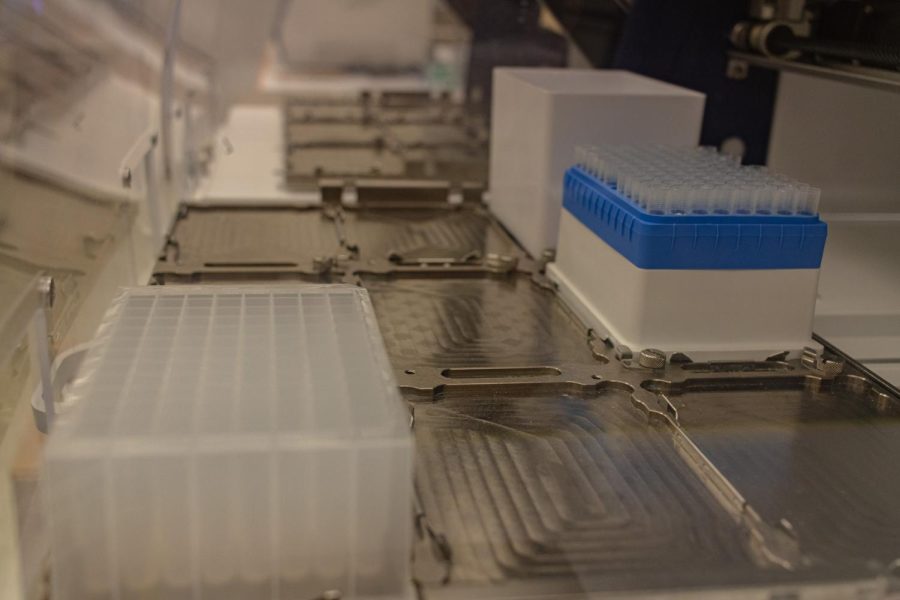Wastewater screening indicates campus COVID-19 levels
An automated machine that separates out wastewater samples for the NIU Covid-19 surveillance lab to test for traces of the virus. (Sean Reed | Northern Star)
January 26, 2023
DeKALB – Although students are no longer required by NIU to screen for COVID-19, wastewater screening shows how much of the virus is present at different residence halls – which is a tool for students trying to stay healthy.
Barrie Bode, professor of biology and director of NIU’s COVID-19 facilities, leads the wastewater screening for campus. He recommends students and staff use the wastewater screening site to assess their individual safety.
“You see the black boxes around campus – just know that those were put there to protect you,” Bode said. “This isn’t a big brother thing, this is a public health thing.”
While NIU is currently experiencing an uptick in coronavirus cases, which Bode attributed to the indoor season, Dr. Bob Manam, an infectious disease specialist, said there isn’t cause for alarm.
“Concern for serious illness, especially after they’ve been vaccinated, number one, and boosted, number two, and likely have had naturally acquired infection, three, their chances for serious illness due to covid is pretty low – that’s the good news,” Manam said.
The newest variant of the coronavirus, XBB.1.5, is highly contagious. Manam said the people who should be most cautious are immuno-compromised people.
“Those who are on immuno-suppresant medications, Chrons disease … transplant patients, people with advanced HIV, they would have to be a little bit more careful,” Manam said.
Manam said hospital admissions for young people are low right now, attributing most of the uptick in cases to the weather pushing people indoors.
While traces of the coronavirus can be found through wastewater testing, it can’t provide a definitive number of cases.
“Given the variability of each individual person and the amount of virus they’re actually shedding into the wastewater system, there’s no way you can predict or back calculate,” Bode said. “Now, what number of people are that are infected? We don’t know – but we can tell you that the number of people have increased, who’re infected. We can’t give you a number, but we can tell you, ‘Yes, this is the trend.’”
NIU’s wastewater screening will be able to show the variants of COVID-19 found during the screening process before the end of the year.
“What we’re really waiting for is for that surge to go up again because if you don’t have real high virus levels, it’s tough to sequence (the virus),” Bode said. “Then we can definitely say ‘Yep, we’ve got the XBB.1.5 as our prevailing strain on campus.”
On NIU’s wastewater surveillance site, you can monitor the coronavirus levels in these areas of campus: Annie Glidden, Hillcrest, Gilbert Hall, Patterson Halls East and West, Neptune Hall, the Northern View Neighborhood, Grant Hall and Stevenson Hall.



